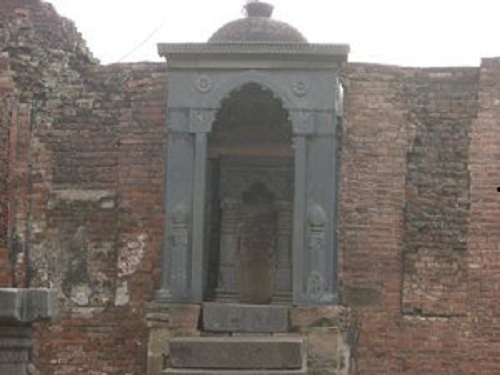- VedicFolks Exclusive Homam
- Spiritual Products
Standers 2
- VedicFolks Pooja
- Deity Idols & Statues
Standers 2
- Top Products

There is no temple in the city of Pandua. The Mamluk dynastry ruler Qutb-ud-din Aibak was built minar by destroying the Shrinkala devi temple. This temple was maintained by the Archaelogical survey of India. There are remnants of the existence of a temple earlier. According to the vedic Scriptures this temple was built by Sage Rhusya Shrunga who was the great devotees of Goddess Shrinkala devi.
During the Maghaa month( March- April) a Mela – Taala is held infront of Minar more than lakhs of people were participate in this celebration.
Shrinkala Devi temple is located in Hoogly district, West Bengal. The city Pandua is 66 kms from Howrah railway station. It is also believed that the temple is in Sringeri, Karnataka. There is also another temple dedicated to Hanseshwari Devi near Shrinkala temple. It is one of the Ashta Dasha Shakti Peethas. Goddess Sati is invoking as Shrinkala or Shrinkula and Goddess Sati’s stomach had fallen here. When Goddess Sati who is the consorts of Lord Shiva sacrifies herself at the yagya performed by her father Daksha a distraught Lord Shiva started dancing with her body. So, he called dancining the dance of destruction. According to one legacy, Lord Vishnu took his bow and arrow and cut the body portion of Goddess Sati into 51 pieces. So, the divine mother of body was fallen in that place. That place become Shakti peetha. Goddess Sati’s stomach felled in Goddess Shrinkala devi temple. This place is called as Shrinkala devi temple. The word Goddess Shrinkala has two meaning the first one is “ Binding chain” or “Binding rope” and the other one is” postnatal women to tie their abdomen tightly”. According to the first meaning the Goddess Jaganmata or Shrinkala devi removes all bonds associated with her devotees. According to the second meaning Post natal stage(divine mother of new born baby) in this form. She will see the universe as her child. So, the devotees image the Goddess Shrinkala as new born baby.
Do:
Don't s:
Do:
Don't s: